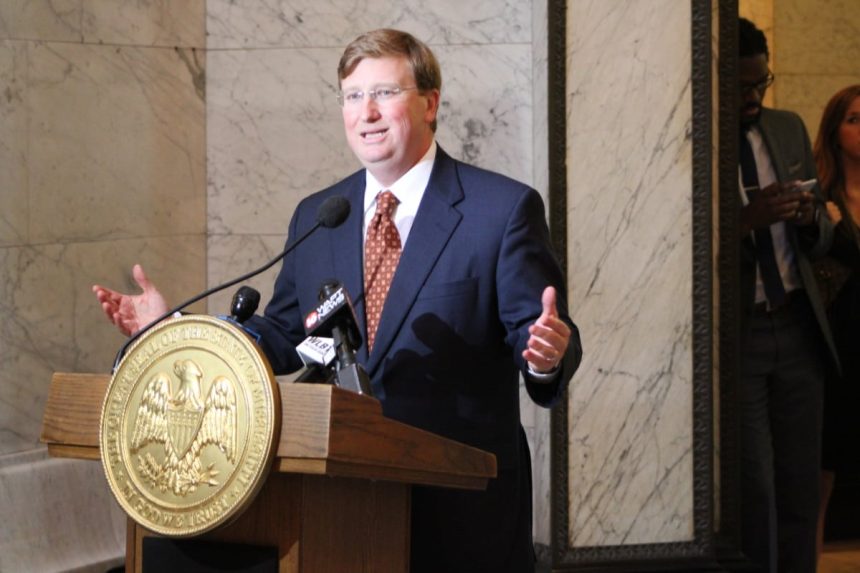Without providing an exact timeline, Governor Tate Reeves expressed Tuesday that he remains confident that a special session will be called with a few caveats.
As conversations continue regarding the medical marijuana proposal drawn up by lawmakers, the governor explained that, while progress has been made on reaching an agreement, there are a few details that need to be addressed.

“I think getting it done right is more important than getting it done quick, but I also recognize the will of the voters,” the governor said.
During a press conference, Reeves specifically mentioned his interest in the allowable THC content for medical marijuana as well as the amount of marijuana that one person can get.
In the most recent draft made available to the public, an individual cardholder would be able to receive 32 ‘units’ in a 30-day period. A unit is defined as:
- 3.5 grams of medical cannabis flower;
- 1 gram of medical cannabis concentrate; or
- 100 milligrams of THC infused product.
The proposed limit on THC content is a “30% cap for flower/trim” and a “60% cap for concentrates, tinctures, & oils.”
Representative Lee Yancey, who authored the bill along with Senator Kevin Blackwell, recently shared with SuperTalk Mississippi that the draft was amended to exclude medical marijuana retailers and other operations associated with the program from receiving incentives from the state for coming to Mississippi.
The program would be overseen by the Mississippi State Department of Health with the Department of Revenue and the Department of Agriculture & Commerce sharing other regulatory duties, however, Ag Commissioner Andy Gipson remains opposed to his agency’s inclusion.
The governor also noted that he is continuing to review other agenda items for a potential special session. This includes allowing lawmakers to allocate funds for programs dedicated to victims of child abuse and domestic violence. Legislators may also work to change language in existing state law to allow the families of law enforcement officers who pass away from COVID-19 to receive ‘line-of-duty’ death benefits from the state.







